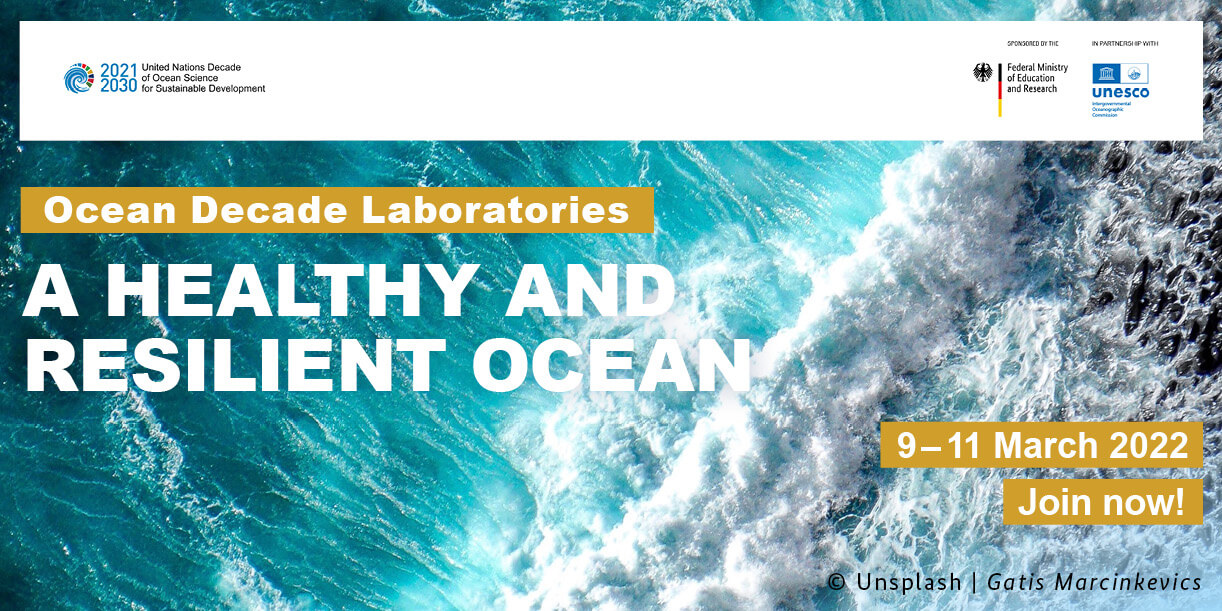
From 9 to 11 March participants from across the world will come together for the fourth Ocean Decade Laboratory “A Healthy and Resilient Ocean”. Scientists, NGO and industry representatives and even artists will share their work and ideas for the future of the ocean.
“A Healthy and Resilient Ocean” kicks off on 9 March with a four-hour Core Event where the hosts will discuss the challenges of a healthy and resilient ocean with guests who connect from across the globe. Karen Wiltshire, Deputy Director of the Alfred Wegener Institute for Polar and Marine Research (AWI), and Tim Jennerjahn from the Leibniz Centre for Tropical Marine Research (ZMT) will lead through the online event. After the Core Event, 48 hours of Satellite Activities follow: workshops, discussions and presentations on topics related to health and resilience of the ocean. The fourth Ocean Decade Laboratory is hosted by the BMBF and the IOC-UNESCO and is accessible to anyone after simple registration.
More than 30 Satellite Activities will take place, and anyone can participate in the discussions. “All these different views and ideas is what I am looking forward to the most,” says Karen Wiltshire, Chair of the Healthy and Resilient Ocean Expert Group. From Mexico the Autonomous University of Carmen presents “Fostering Stronger Preparedness Before Oil Spill Risks”, fashion designer Runa Ray will hold a session on “Ocean Accessibility and Fashion” and the Students on Ice Foundation from Canada will host “Understanding the Environmental, Social and Economic Importance of a Sustainable Blue Economy for a Healthy & Resilient Ocean.”
“The ocean is actually incredibly resilient,” says Karen Wiltshire. “Species have adapted or changed depending on the conditions over thousands of years. But the increasing world population will now have an enormous impact on the ocean in just a few years.”
Fishing is one of such impacts. A growing population uses the ocean for fish and its proteins. Large fish farms are emerging, and fertilizers speed up their efficiency.
“Fish farming and the use of feed and fertilizers in the coastal zone are necessary to feed the world,” says Tim Jennerjahn. “But we have to be careful not to think in only the short term. For example, just like on land, excessive use of fertilizers can be devastating in the long run. A healthy ocean requires a responsible and sustainable management of aquaculture and marine resources.”
Registration for the event is possible here. If you participated in one of our last Labs, you can also log in here with your user data. A list of all Satellite Activities can be found here.
Call for Online Sessions: If you would like to go one step further and contribute a Satellite Activity for the upcoming Ocean Decade Laboratories, you are welcome to submit your ideas for “An Accessible Ocean” and “A Productive Ocean” here.